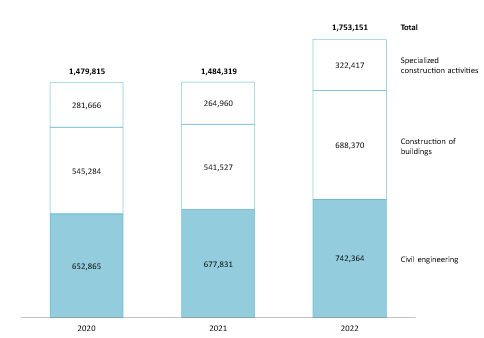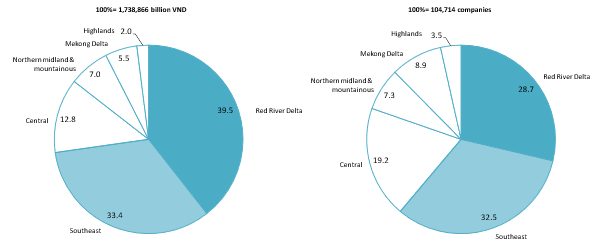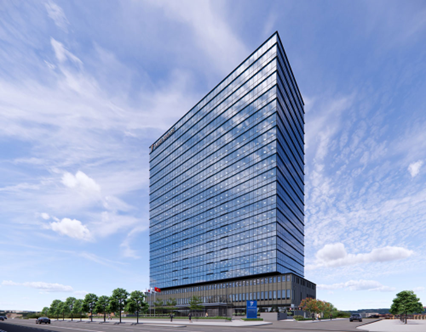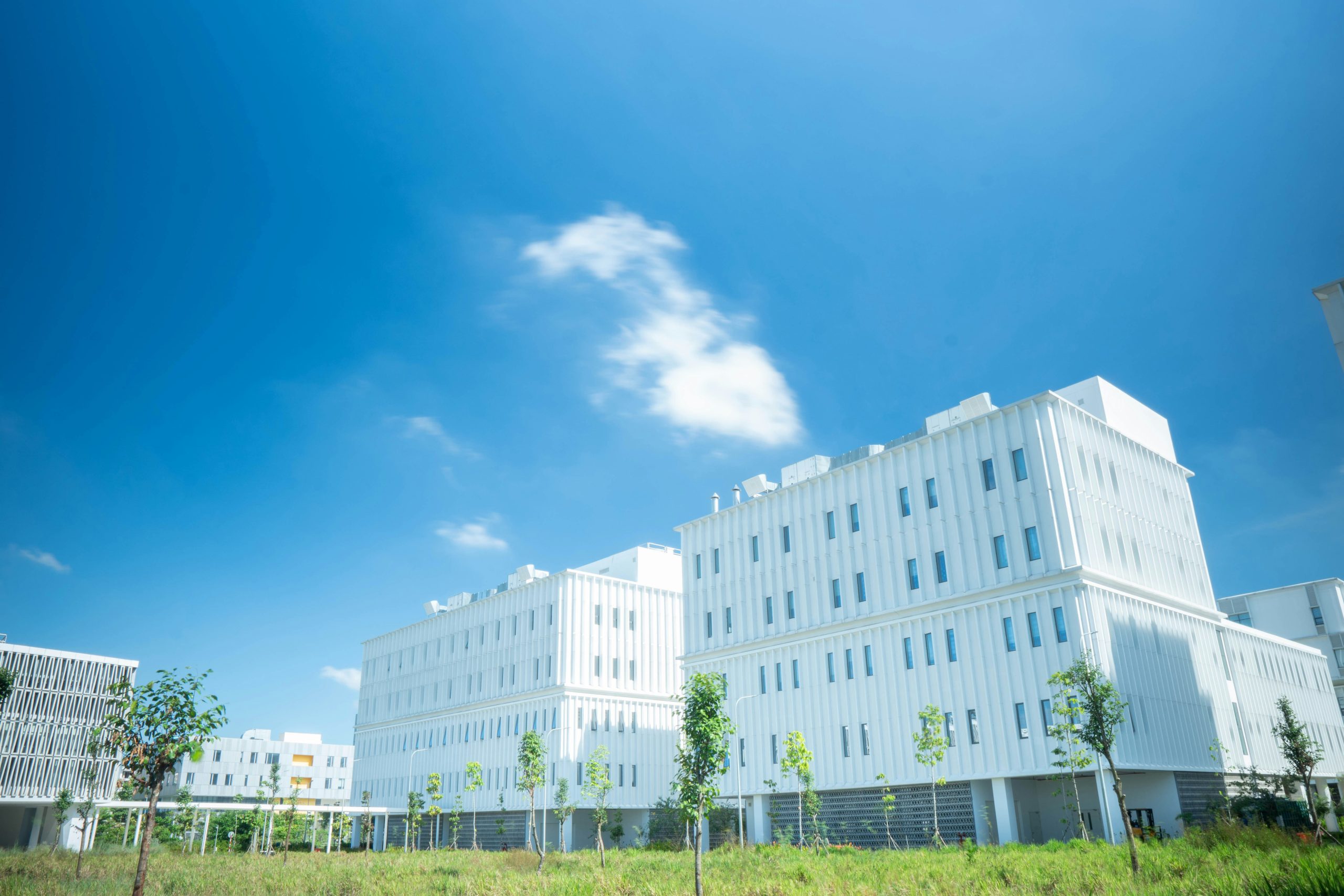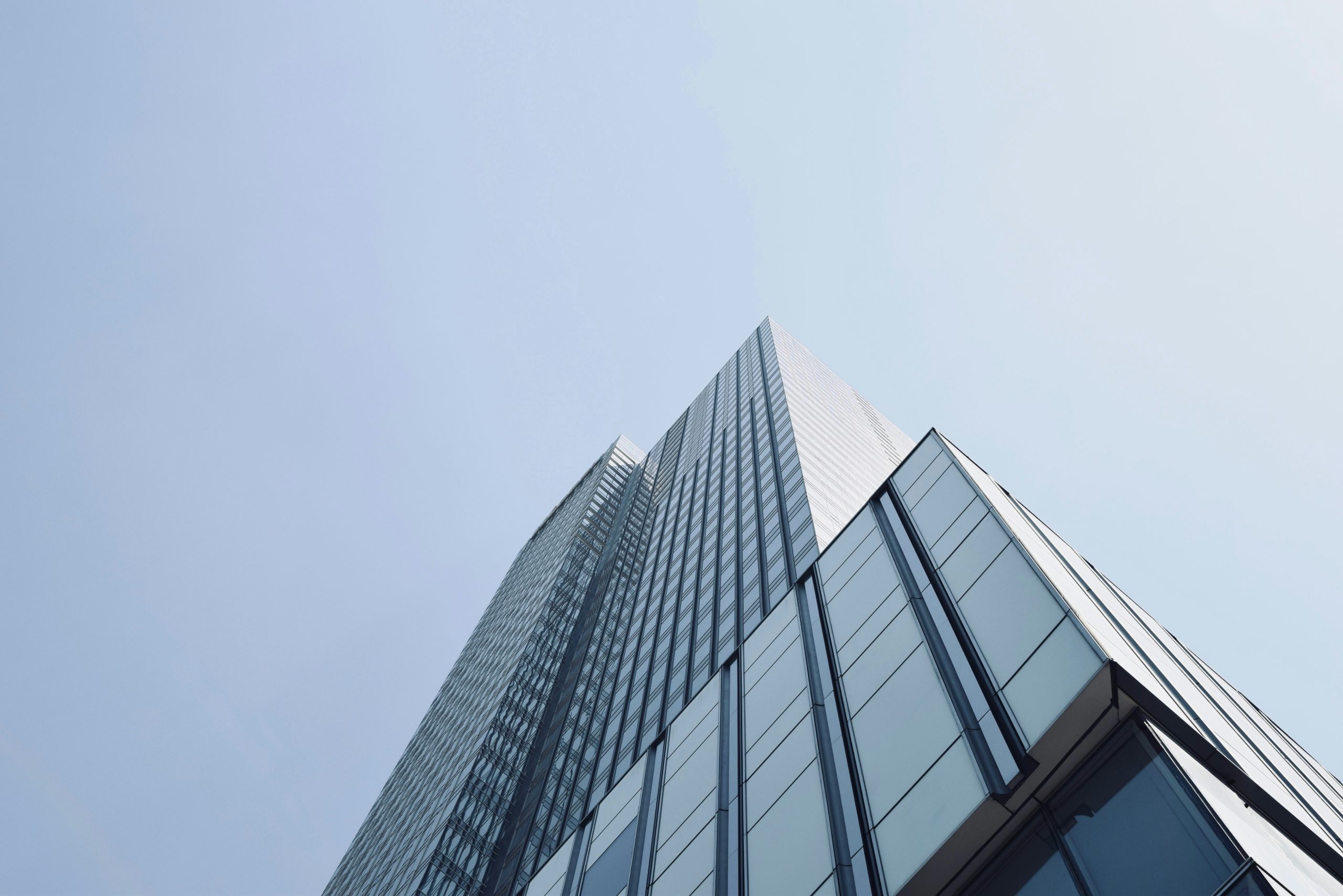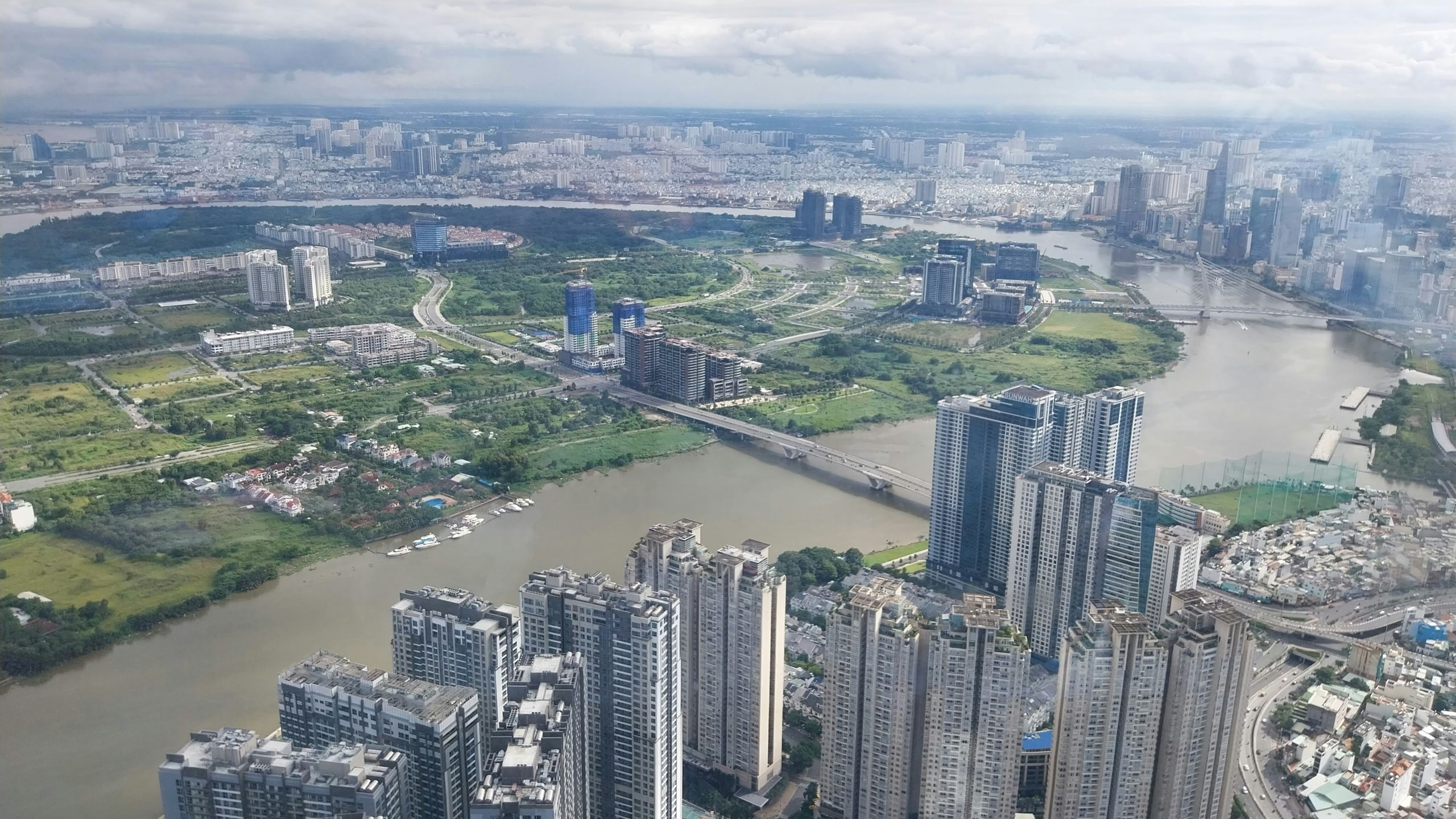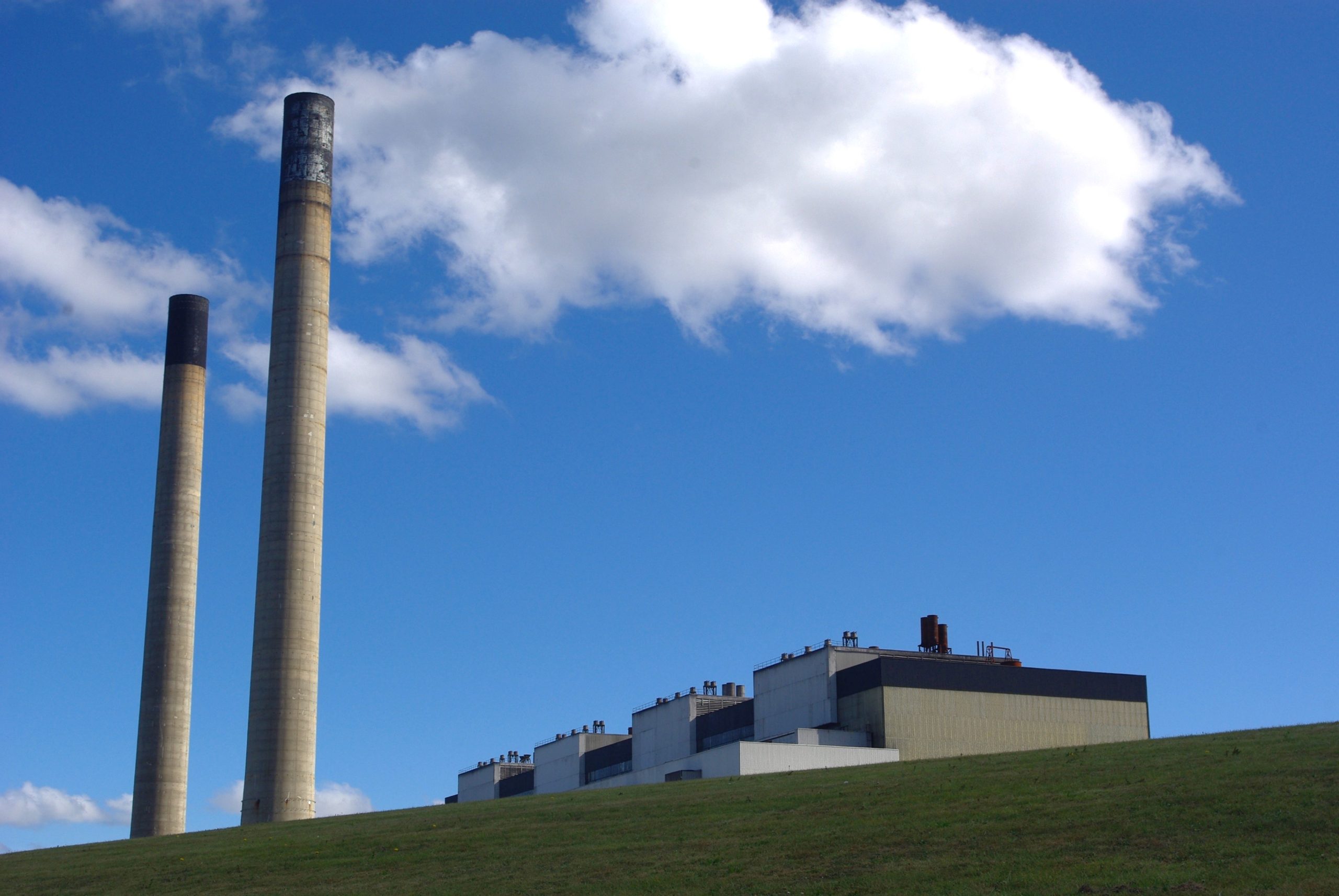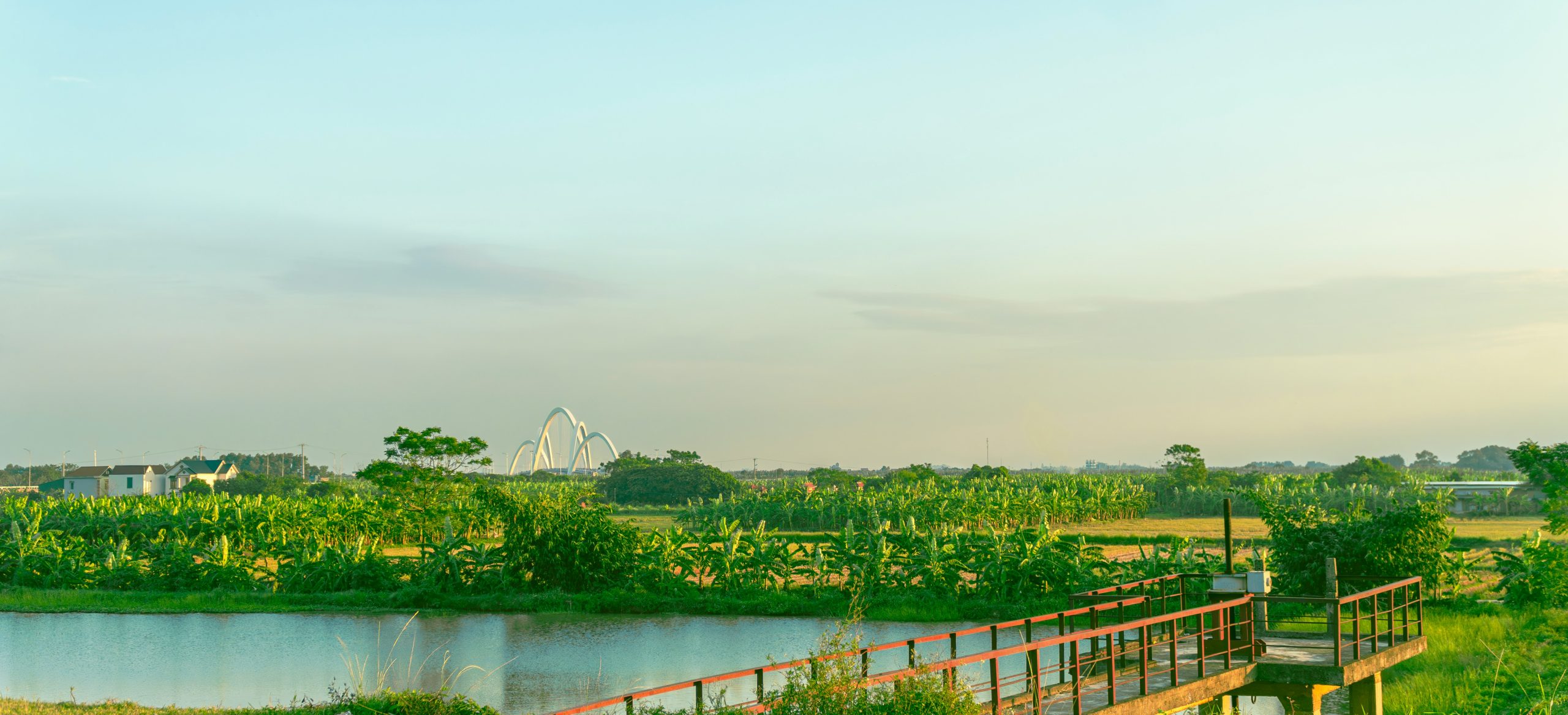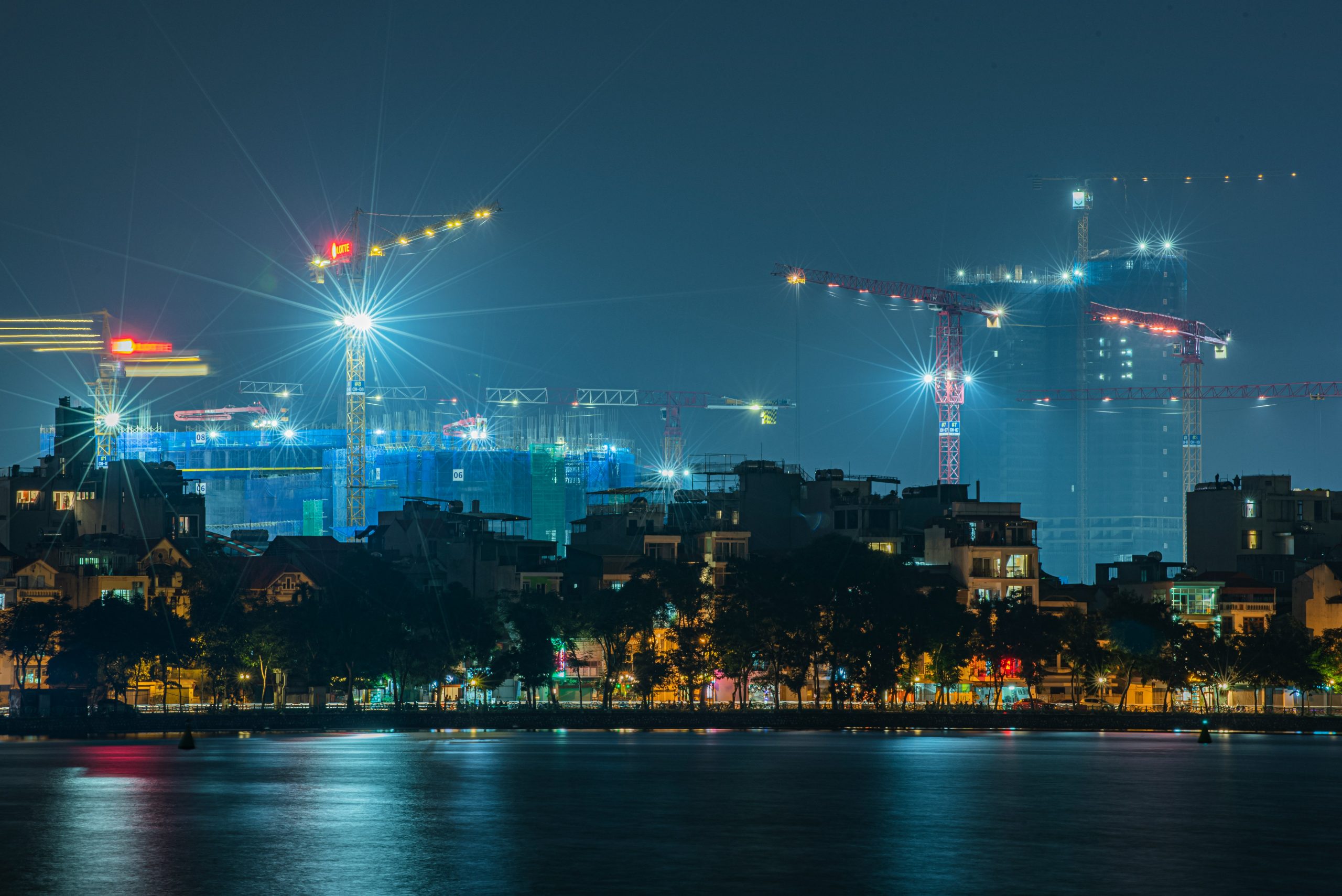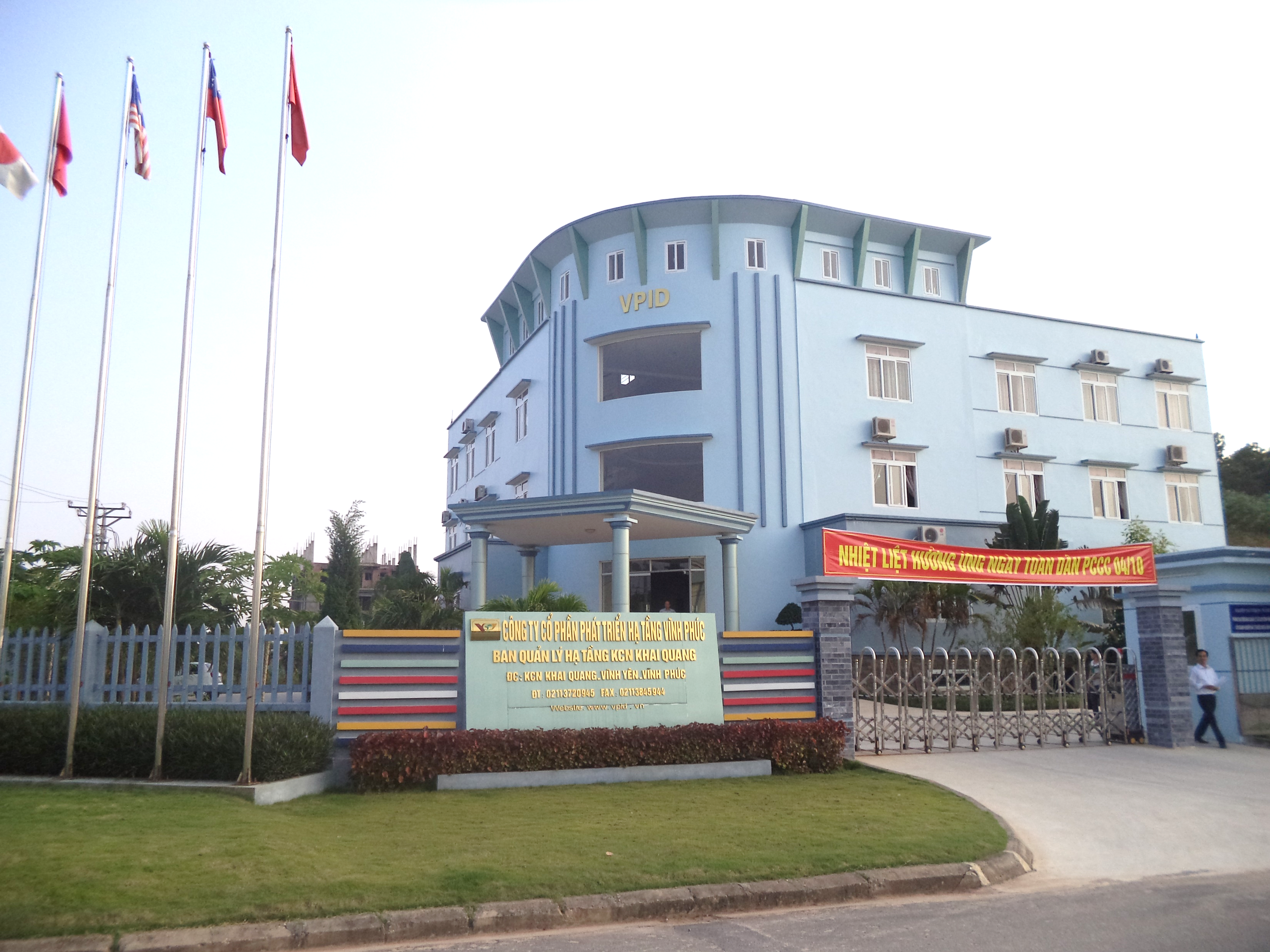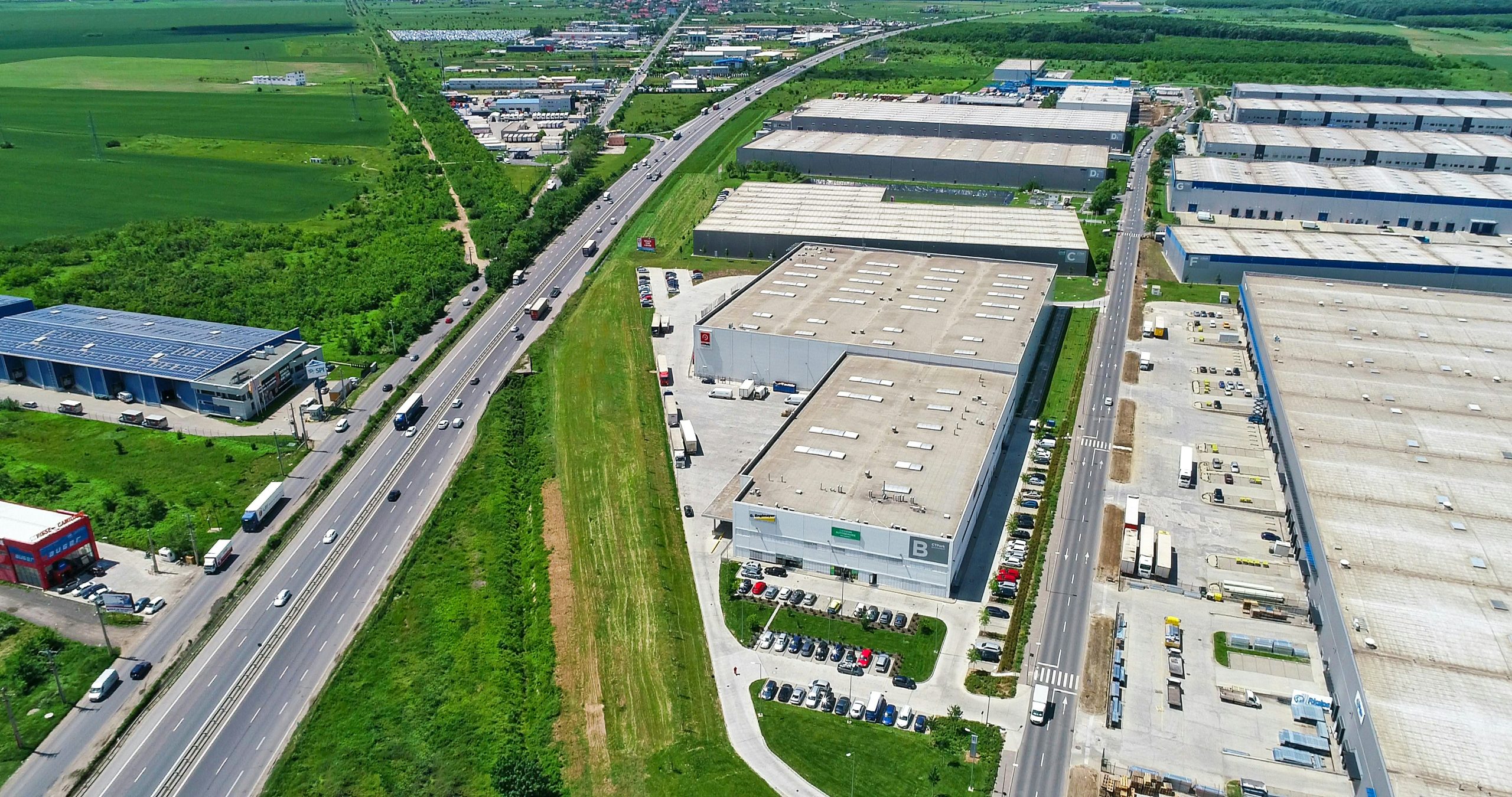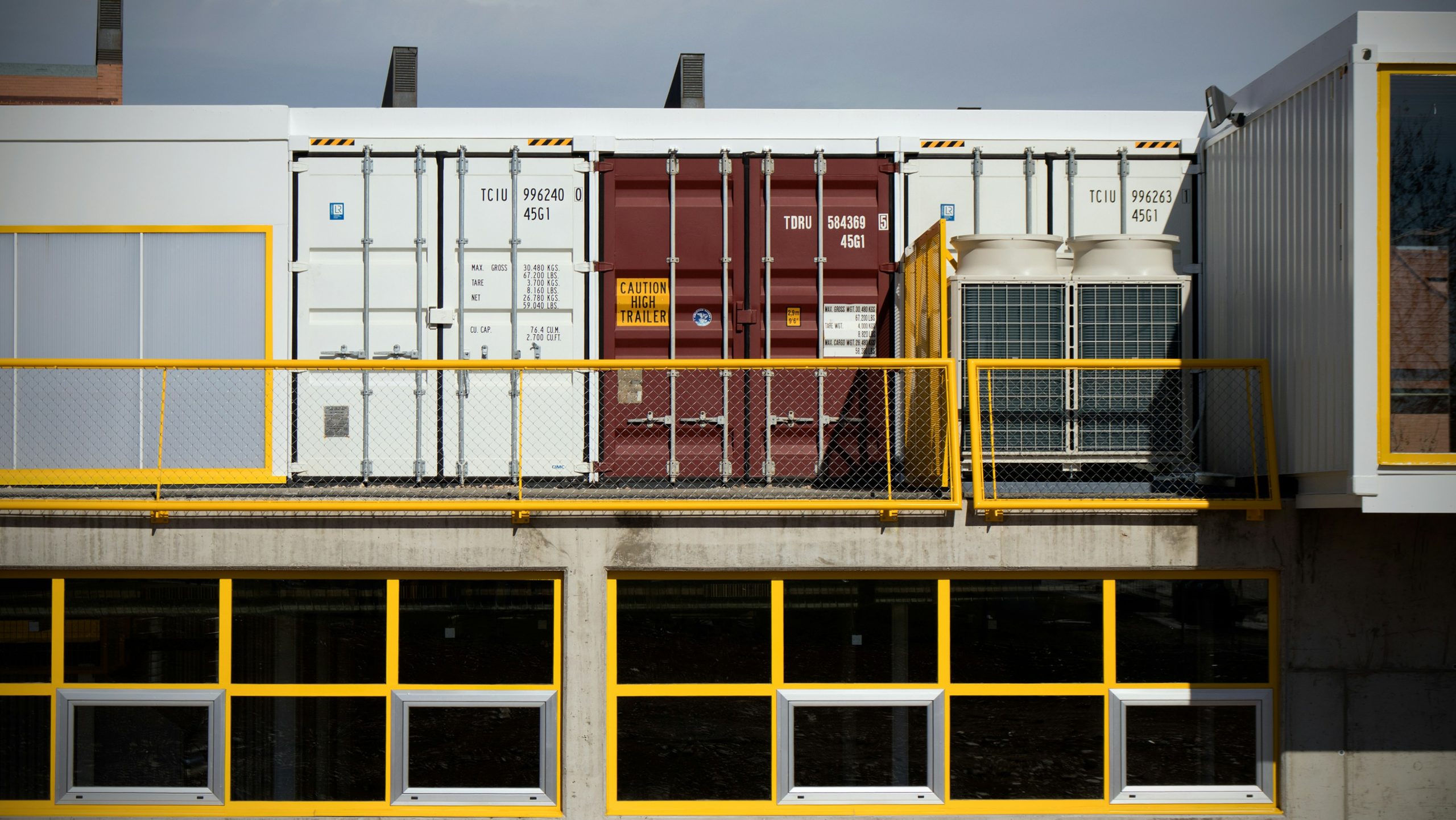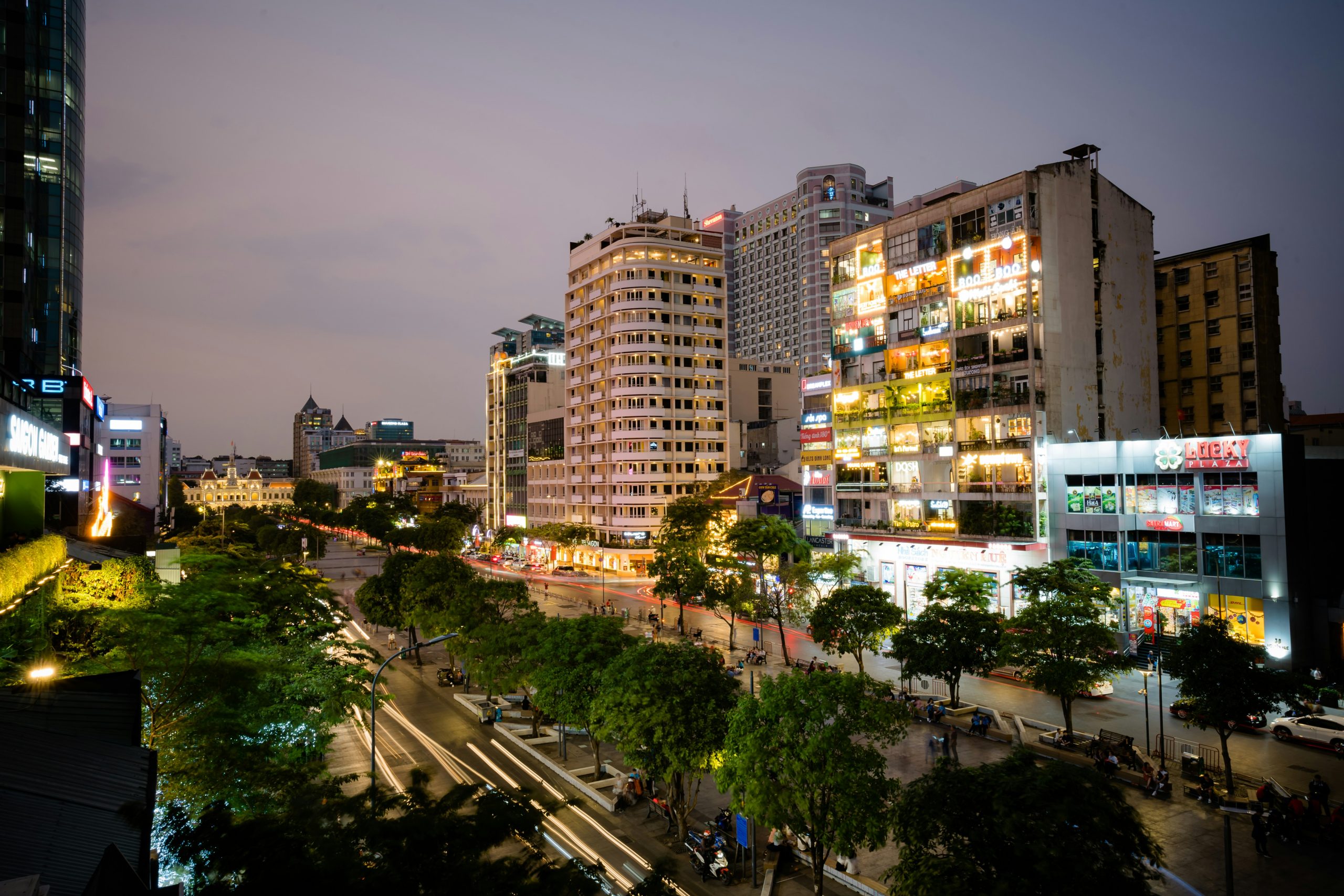
072월2025
최신 뉴스 및 보고서 / 베트남 브리핑
댓글: 댓글 없음.
베트남의 건설 산업은 국가의 급속한 도시화와 산업화를 반영하여 경제 변화의 초석이 되었습니다. 동남아시아에서 가장 빠르게 성장하는 부문 중 하나로서, 국가의 미래를 형성할 잠재력으로 국내외의 주목을 받고 있습니다.
베트남 건설 산업 개요
베트남의 건설 산업은 지난 10년 동안 국가 경제 성장과 도시화의 주요 원동력 중 하나였습니다. 2024년에 이 산업은 연간 목표인 6.4%~7.3%를 넘어서 약 8%의 성장률을 기록했습니다.[1]. 2020년 이후 가장 높은 성장률을 기록한 건설 산업은 국가 총 GDP에 약 282억 달러를 기여할 것으로 추산되며, 이는 6%에 해당합니다. 건설부(MOC)는 또한 목표 도시화율을 초과하고 목표 폐수 수거 및 처리율과 1인당 국가 평균 주택 면적을 충족하는 등 이 부문의 많은 성과를 강조했습니다.[2].
B&Company의 Enterprise Database에 따르면, 2022년에 이 산업은 총 104,732개의 회사를 운영했고, 총 순수익은 1,753,151억 VND, 또는 거의 700억 USD를 기록했습니다. 이 산업은 다음과 같은 세 가지 주요 영역으로 세분화됩니다.
– 건물 건설(VSIC 코드 41) 저렴한 주택에 대한 수요 증가, 특히 하노이와 호치민시와 같은 도시 지역과 국가 산업화 과정에 의해 주도되는 주거 건설 및 비주거 인프라에 중점을 둡니다. 이 산업은 2022년에 680,775억 VND의 순수익을 올렸습니다.[3].
– 토목공학(VSIC 코드 42) 2022년 순수익 735,6740억 VND로 건설업계 1위 달성[4]. 이 부문의 활동에는 교통망, 에너지 시설, 수자원 관리 시스템을 포함한 인프라 개발이 포함됩니다.
– 전문 건설 활동(VSIC 코드 43)상업 공간, 산업 시설, 소매 단지를 포함하는 2022년 순수익은 322,417억 VND를 기록했습니다.[5].
Net revenue of Vietnam’s construction industry, from 2020 to 2022 (Unit: Billion VND)
출처: B&Company의 Enterprise Database
베트남의 건설 산업은 홍강 삼각주와 남동부에 집중되어 있으며, 각각 2022년에 평균 36%의 순수익과 30%의 회사를 차지합니다. 중부 지역은 3위를 차지했으며, 순수익 13%와 산업 참여자 19%를 기여했습니다. 하일랜드는 가장 작은 점유율을 보였으며, 3,619개 회사가 산업 수익의 2%만 창출했습니다.
2022년 베트남 지역별 건설산업 구조 (단위: %)
출처: B&Company의 Enterprise Database
이 부문은 주로 베트남 기업이 주도하고 있으며, Hoa Binh Construction Group JSC, Conteccons Construction JSC, Viet Nam Construction and Import-Export JSC와 같이 건물 건설 하위 부문에서 저명한 이름을 가지고 있습니다. 2022년 Hoa Binh Construction Group JSC는 14,000억 VND 이상으로 이 부문에서 가장 높은 순수익을 기록했습니다. Zeit Ca Vietnam Co., Ltd는 이 부문에서 가장 많은 수익을 올린 기업 중 유일한 FDI 기업 대표였습니다.
표 1: 2022년 순수익 기준 베트남 건설업계 상위 10대 기업
| 아니요. | 회사 이름 | VSIC 코드 | 시/도 | 국가 | 순수익(10억 VND) |
| 1 | 호아빈 건설 그룹 JSC | 41020 | 호치민시 | Vietnam | 14,064 |
| 2 | 리콘스 건설 투자 주식회사 | 41010 | 호치민시 | Vietnam | 11,290 |
| 3 | 뉴테콘스 인베스트먼트 건설 주식회사 | 41020 | 호치민시 | Vietnam | 11,148 |
| 4 | 콘테콘스 건설 주식회사 | 41010 | 호치민시 | Vietnam | 10,775 |
| 5 | 센트럴 건설 주식회사 | 41010 | 호치민시 | Vietnam | 9,014 |
| 6 | 베트남 건설 및 수입 - 수출 JSC | 42990 | 하노이 | Vietnam | 7,531 |
| 7 | Zeit Ca Vietnam 주식회사 | 42990 | 하이퐁 | 한국 | 7,146 |
| 8 | 중남건설엔지니어링(주) | 42120 | 람동 | Vietnam | 6,884 |
| 9 | PC1 그룹 주식회사 | 42210 | 하노이 | Vietnam | 6,263 |
| 10 | 유니콘스인베스트먼트건설(주) | 41010 | 호치민시 | Vietnam | 5,771 |
출처: B&Company의 Enterprise Database
베트남 건설 산업에 대한 외국인 직접 투자
건설 산업은 세계적 팬데믹 이후 유입 투자가 감소했지만 2023년 이후 회복 조짐을 보였습니다. 팬데믹으로 인해 신규 FDI 프로젝트가 크게 감소하여 2019년 139개에서 2022년 36개로 감소했고 총 가치는 $994백만에서 $353백만으로 감소했습니다.[6]. 그러나 2023년에는 등록 자본이 13% 증가하여 새로운 성장 잠재력이 강조되었습니다.[7]2024년 중반까지 이 부문은 1,837개의 활성 FDI 프로젝트를 기록했으며 이는 베트남의 총 FDI 프로젝트의 4.5%를 나타내며 등록 자본은 약 $110억, 즉 국가의 총 FDI 가치의 2.3%에 해당합니다.[8].
표 2: 2017년부터 2023년까지 베트남 건설 산업의 신규 허가 FDI 프로젝트
| 년도 | 수량 (단위: 프로젝트) | 가치 (단위: 백만 달러) |
| 2017 | 128 | 1,260 |
| 2018 | 118 | 659 |
| 2019 | 139 | 994 |
| 2020 | 79 | 619 |
| 2021 | 28 | 465 |
| 2022 | 36 | 311 |
| 2023 | 40 | 353 |
원천: 베트남 통계 연감, B&Company 합성
FDI는 베트남의 주요 경제 허브인 홍강 삼각주와 동남부에 집중되어 있습니다. 2022년에 건설 부문의 621개 외국 기업이 96,570억 VND의 순수익을 합산했으며, 홍강 삼각주는 두 지표의 절반 이상을 기여했습니다. 동남부는 총 순수익의 44%와 기업의 43%를 차지했습니다. 일본은 TTCL Vietnam Corporation Limited(건물 건설), Kinden Vietnam Co., Ltd.(토목 공학), Phan Vu Investment Corporation(특수 건설 활동)과 같은 저명한 이름을 포함하여 이 부문에서 활동하는 90개 기업으로 외국인 투자를 주도했습니다. 일본의 FDI 기업은 최근 몇 년 동안 TTCL Vietnam Corporation이 2023년에 건설한 Bac Ninh High-Technological 도시 폐기물-에너지 플랜트와 같이 혁신적인 설계로 주목할 만한 프로젝트를 많이 진행했습니다.[9] 또는 2024년에 Taisei Corporation이 건설할 서부 하노이 최초의 LEED 인증 A등급 사무실 건물인 현대식 사무실 건물 Taisei Square Hanoi가 있습니다.
Taisei Square Hanoi, the first LEED certified Grade A office building in West Hanoi
원천: 타이세이 스퀘어 하노이
정부 정책
정부는 베트남의 도시화와 산업화를 촉진하기 위해 건설 산업의 현재 성장률을 유지하는 것을 목표로 했습니다. 2024년에 정부는 2030년까지의 건설 산업 개발 전략, 2045년까지의 방향을 승인하는 결정 No. 179/QD-TTg를 통과시켰습니다.[10]. 이 결정은 도시 개발 및 건설 관리 부문의 많은 주요 목표를 강조했으며, 주택 부족 및 폐수 처리와 같은 주요 사회적 과제를 부문의 지원을 통해 해결하는 것을 목표로 했습니다.
표 3: 2030년까지의 건설 산업 개발 전략에 따른 주요 목표, 결정 번호 179/QD-TTg에 따른 2045년까지의 방향
| 아니요. | 부문 | 특정 목표 | |
| 2025년까지 | 2030년까지 | ||
| 1 | 건설 계획 및 건축 | 도시지역 건축관리규정 제정 | 건축관리규정이 있는 도시 및 농촌 주거지역의 80% |
| 2 | 도시 개발 | – 도시화율 : 45%
– 도시건설용지비율 : 1.5~1.9% – 도시 지역: 950-1,000 |
– 도시화율 : 50%
– 도시건설용지비율 : 1.9~2.3% – 도시 지역: 1,000-1,200 |
| 3 | 도시 기술 인프라 | – 도시하수 회수율 : 70%
– 도시 강우수 배수 시스템의 적용 범위: 70% |
도시폐수 수거율 : 80%
– 도시 강우수 배수 시스템의 적용 범위: 80% |
| 4 | 주택 | – 1인당 평균 거주 면적: 27m2/인 | – 1인당 평균 거주 면적: 30m2/인 |
| 5 | 건설 관리 | – 건설 생산 가치: 8-10%
– 노동생산성 증가율: 8%/년 |
– 건설 생산 가치: 8-10%
– 노동생산성 증가율: 10%/년 |
원천: TVPL, B&Company 합성
결론
베트남의 건설 산업은 다양한 세그먼트와 국내 및 국제적 플레이어가 혼합되어 형성된 역동적이고 경쟁적인 시장을 제공합니다. 어려움이 지속되지만, 정부 지원과 민간 부문 혁신과 더불어 산업의 강력한 성장 전망은 베트남 경제 변화의 핵심 기둥으로 남을 것입니다.
[1] 정부 전자신문. 건설 부문 성장률은 2020년 이후 가장 높음평가하다>
[2] MOC. 2024년 연말 검토 및 2025년 건설 부문 방향 및 과제에 대한 보고서평가하다>
[3] 엔터프라이즈 데이터베이스. 회사 및 산업 보고서 2022
[4] 엔터프라이즈 데이터베이스. 회사 및 산업 보고서 2022
[5] 엔터프라이즈 데이터베이스. 회사 및 산업 보고서 2022
[8] FIA. 2024년 상반기 베트남 외국인 투자 유치 상황평가하다>
[9] TTCL 베트남. 프로젝트 경험 – 바이오 및 재생 에너지평가하다>
[10] TVPL. 2030년까지 건설 산업 개발 전략 승인, 2045년까지 방향 설정에 대한 결정 No. 179/QD-TTg평가하다>
* 본 기사의 내용을 인용하고자 하시는 경우, 저작권을 존중하여 출처와 원 기사의 링크를 함께 명시해 주시기 바랍니다.
| 비앤컴퍼니
2008년부터 베트남에서 시장 조사를 전문으로 하는 최초의 일본 기업입니다. 업계 보고서, 업계 인터뷰, 소비자 설문 조사, 비즈니스 매칭을 포함한 광범위한 서비스를 제공합니다. 또한, 최근 베트남에서 900,000개 이상의 기업에 대한 데이터베이스를 개발하여 파트너를 검색하고 시장을 분석하는 데 사용할 수 있습니다. 문의사항이 있으시면 언제든지 문의해주세요. info@b-company.jp + (84) 28 3910 3913 |
